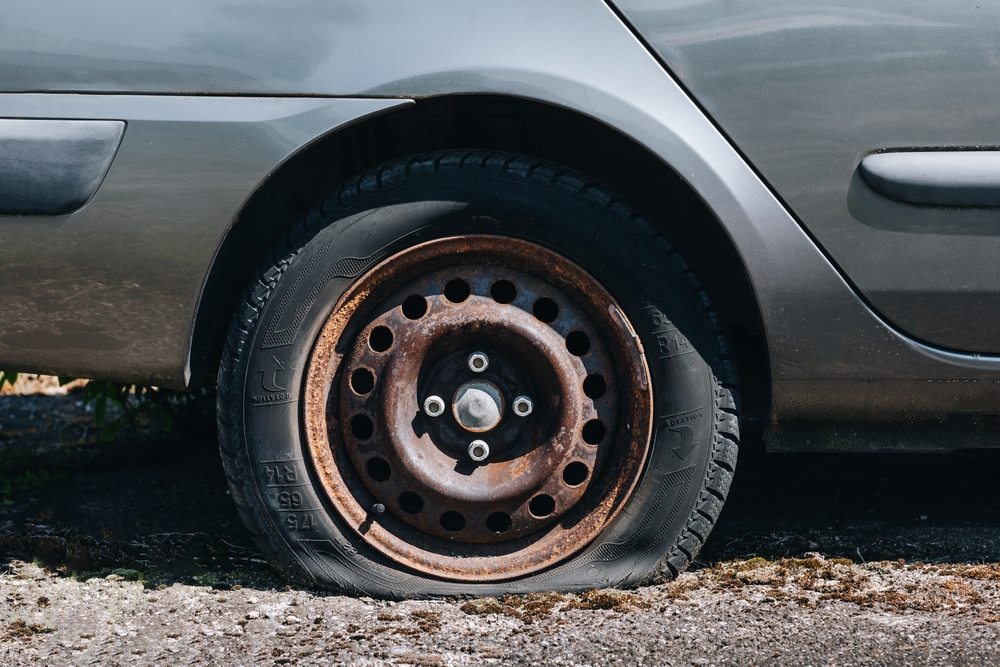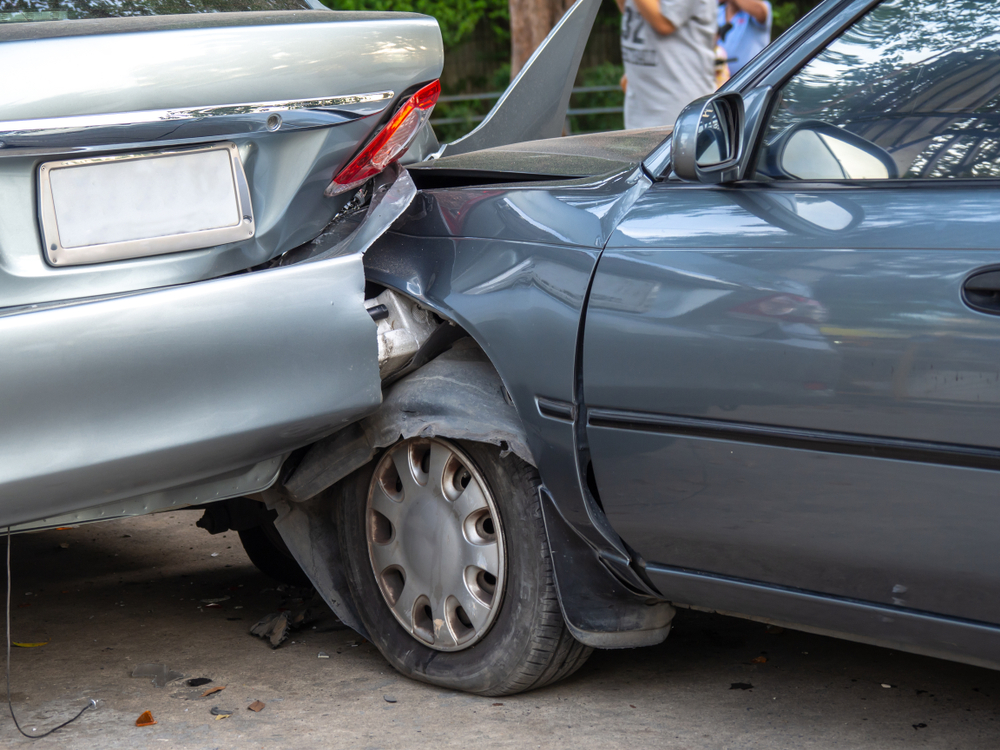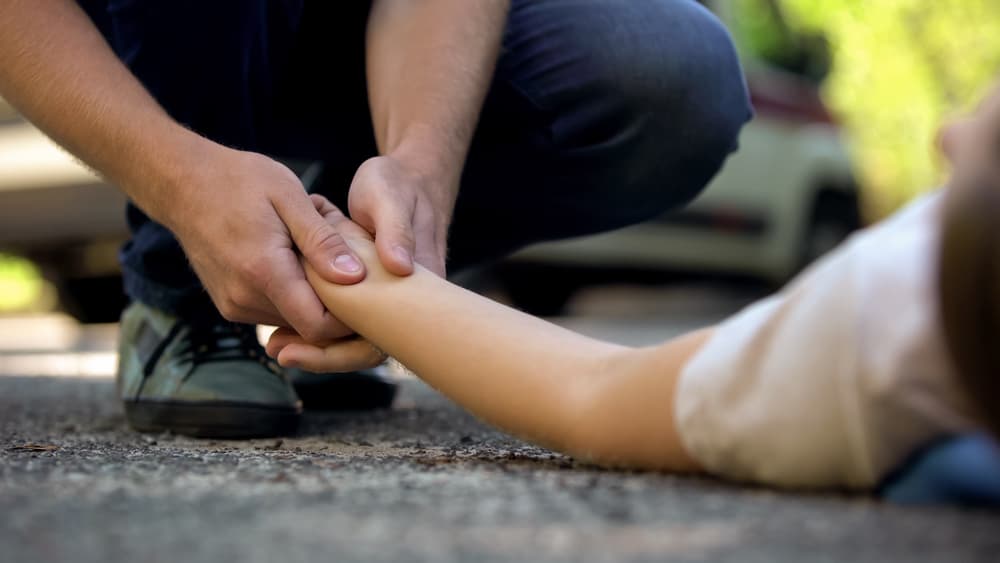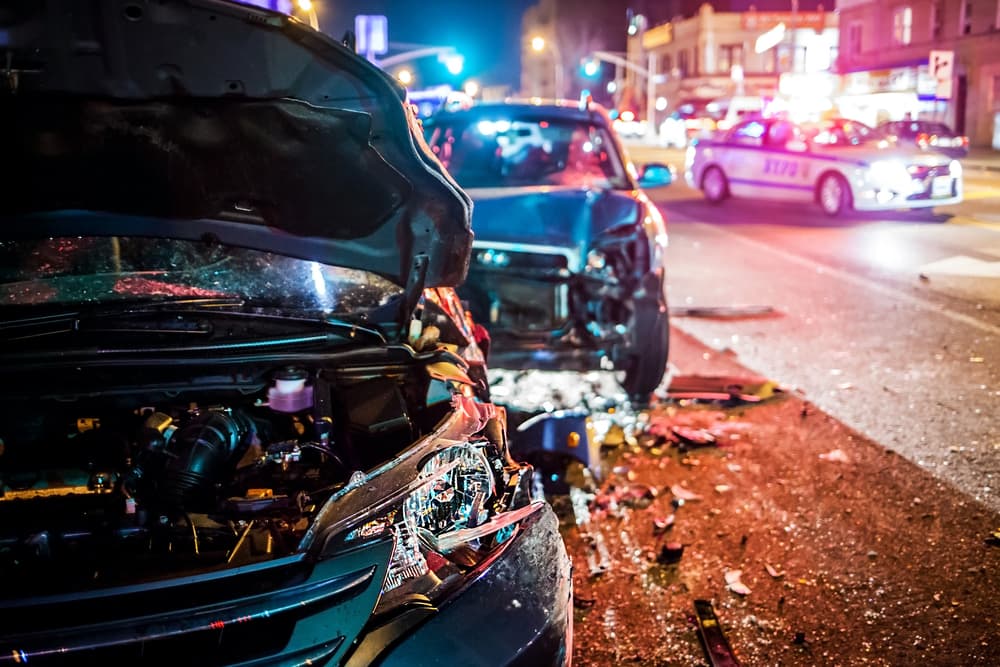Car operators and owners have a legal duty to maintain their vehicles in a reasonably safe condition. Part of this duty involves regularly rotating tires and replacing defective tires. When individuals fail to take these steps, serious accidents can happen that result in debilitating injuries for others.
If you suffered injuries in a recent car crash that resulted from defective tires on another vehicle, it’s important to consult with experienced legal counsel right away. Your car accident lawyer can determine your options for moving forward, file a claim or lawsuit on your behalf, and pursue the compensation you need for your injuries.
How Can Defective Tires on Other Vehicles Cause Accidents, and What Types of Collisions Can Occur?
Defective tires on other vehicles can significantly increase the risk of car accidents and lead to various types of collisions.
When a vehicle has defective tires, several issues can arise:
First, tire blowouts are a common problem. A tire blowout occurs when a tire suddenly bursts, causing the driver to lose control of the vehicle. This can lead to swerving across lanes, making it difficult for nearby drivers to predict and avoid the erratic movement. In heavy traffic, a blowout may cause a chain reaction of collisions as drivers behind the affected vehicle may not have enough time to stop or change lanes safely.
Another issue with defective tires is tread separation. This occurs when the tread – or the part of the tire that makes contact with the road – separates from the tire’s body. Tread separation can drastically reduce the vehicle’s grip on the road, especially during turns or in wet conditions. This can cause the vehicle to skid or spin out of control, creating hazardous situations for surrounding traffic.
Worn-out or bald tires also pose a significant risk. Tires with insufficient tread depth cannot effectively channel water away during rain, increasing the likelihood of hydroplaning. Hydroplaning occurs when a layer of water builds up between the tires and the road, causing the vehicle to lose traction. A hydroplaning vehicle can slide uncontrollably, potentially colliding with other vehicles.
Defective tires can lead to several types of collisions. Rear-end collisions are common when a vehicle with a blowout suddenly slows down or stops, causing the following car to crash into it. Side-impact collisions, or T-bone accidents, can occur if a vehicle loses control and swerves into an intersection, striking another car on the side. Head-on collisions can happen if a vehicle crosses the median or centerline due to a tire blowout or tread separation, colliding with oncoming traffic.
Multi-vehicle pileups are particularly dangerous and can result from defective tires in congested traffic conditions. If a tire blowout causes a vehicle to swerve suddenly, multiple vehicles may be involved as they attempt to avoid the initial accident, leading to a chain reaction of crashes.
How Can Other Drivers Be Responsible for Defective Tires on Their Vehicles that Cause Car Crashes?

Other drivers can be held responsible for defective tires on their vehicles that cause car accidents.
- First, drivers have a legal and ethical duty to maintain their vehicles in safe operating conditions. This includes regular inspection and maintenance of their tires. Tires wear out over time, and factors like tread depth, tire pressure, and the presence of any visible damage need to be checked frequently. Drivers who neglect these checks may be found negligent if their defective tires cause an accident. For instance, driving with bald tires significantly increases the risk of hydroplaning and losing control of the vehicle – especially in wet conditions.
- Moreover, tire pressure is a critical aspect of tire maintenance. Underinflated or overinflated tires can lead to uneven wear and increase the likelihood of a blowout. Modern vehicles are equipped with tire pressure monitoring systems (TPMS) that alert drivers when tire pressure is too low or too high. Ignoring these warnings and failing to correct tire pressure issues can be considered negligence, as it directly affects the vehicle’s safety.
- Drivers are also responsible for being aware of tire recalls and safety notices that manufacturers issue. When a tire defect is identified, manufacturers typically issue recalls to replace or repair the defective tires. Ignoring such recalls and continuing to drive with known defective tires can make the driver liable in the event of an accident. It is the driver’s responsibility to stay informed about such recalls and take appropriate action to remedy any defects.
- Additionally, legal liability can extend to situations where a driver knowingly purchases and uses second-hand or retreaded tires without verifying their safety. Using tires with unknown histories or those that have been inadequately repaired increases the risk of tire failure. In the event of an accident, the driver may be held responsible for not ensuring that their tires are in safe condition.
Drivers bear significant responsibility for making sure that their tires are in good condition. Regular maintenance, adhering to safety recalls, and proper tire usage are crucial steps in preventing accidents that result from defective tires. Failing to uphold these responsibilities not only endangers the driver and their passengers but also poses a threat to other road users, potentially leading to serious accidents and injuries.
Injuries in Car Accidents that Result from Defective or Worn Tires on Another Vehicle

Injuries resulting from car accidents due to defective tires can be severe and life-altering. One common type of injury in such accidents is whiplash. Whiplash occurs when the victim’s head and neck are suddenly jolted backward and then forward, typically during a rear-end collision. This can strain or tear the muscles and ligaments in the neck, leading to pain, stiffness, and reduced range of motion. Whiplash may also cause headaches, dizziness, and even cognitive difficulties in more severe cases.
Another frequent injury is broken bones. When a vehicle loses control due to a tire blowout or tread separation, the resulting collisions can be forceful enough to fracture bones. Commonly affected areas include the arms, legs, ribs, and even the skull. These injuries often require extensive medical treatment, including surgery, physical therapy, and prolonged recovery periods.
Spinal injuries are also a serious risk. The spine can become damaged when the victim’s body is subjected to sudden, violent movements or impacts. This can result in herniated discs, fractured vertebrae, or even spinal cord injuries. In severe cases, spinal cord injuries can lead to partial or complete paralysis, drastically altering a person’s life and necessitating long-term medical care and rehabilitation.
Head injuries, including concussions and traumatic brain injuries (TBI), are another major concern. The force of a car crash can cause the accident victim’s head to strike the steering wheel, dashboard, or windows, leading to brain injuries. TBIs often range from concussions (which may cause temporary confusion and headaches) to comas and other severe injuries that result in long-term cognitive and physical impairments.
Internal injuries are another serious consequence. The force of a collision can cause internal organs to become bruised or ruptured. This includes injuries to the victim’s lungs, liver, spleen, and kidneys. Internal injuries can be life-threatening and may not be immediately apparent, requiring urgent medical attention to diagnose and treat.
How to Prove that Another Driver was Negligent for Causing a Car Crash Due to Defective Tires on Their Vehicle
Proving that another driver was negligent for causing a car crash involves several key steps. These steps center around gathering evidence and demonstrating that the driver’s lack of proper maintenance or awareness directly caused the collision.
- First, it’s crucial to establish that the tires were indeed defective and contributed to the accident. This often requires an examination by a qualified mechanic or tire expert who can identify specific issues such as worn tread, improper inflation, or structural defects like tread separation. An expert’s report can provide a detailed analysis of how the tire’s condition contributed to the collision.
- Secondly, maintenance records can play a pivotal role. If a driver has neglected regular tire maintenance, such as rotations, alignments, and pressure checks, this fact can be used as evidence of negligence. Service records from auto shops or tire service centers can indicate whether the driver regularly maintained their tires or ignored professional recommendations for repairs or replacements.
- Another significant aspect is tire recalls and safety notices. If the tire manufacturer had issued a recall or safety notice and the driver ignored it, this fact can strongly support a claim of negligence. Documentation showing that the driver was aware of the recall and failed to act may be crucial. This failure can be demonstrated through mailed notices, emails, or public announcements about the recall.
- Eyewitness testimony and accident reports also provide essential evidence. Witnesses can describe the behavior of the vehicle before the crash, such as erratic driving, which may indicate a tire blowout or other sudden tire failure. Police reports often include observations from the scene, including visible tire damage, and statements from the involved parties.
- Additionally, photographs and videos from the accident scene can be vital. Images of the tires showing obvious wear, damage, or other defects can help to substantiate the claim that the tires were in poor condition. Dashcam footage or surveillance videos may capture the moment of the tire failure or the ensuing accident, providing clear evidence of the cause.
By demonstrating that the other driver failed to maintain their tires properly or ignored known defects, it is possible to establish that their negligence directly caused the accident.
Recovering Compensation Following a Car Crash from Defective Tire

Following a car crash, victims may be entitled to various types of compensation. This compensation is aimed at recovering the victim’s financial, physical, and emotional losses due to the accident.
- First, related medical expenses are a primary form of compensation. This includes the cost of emergency room visits, surgeries, hospital stays, and ongoing medical treatments like physical therapy or rehabilitation. Prescription medications, medical equipment, and any necessary modifications to the victim’s home, like wheelchair ramps, are also covered. Even future medical expenses related to the injury can be included if long-term care is anticipated.
- Lost income is another significant component of post-accident compensation. If the victim is unable to work due to their injuries, they can claim compensation for the income they would have earned. This also extends to loss of future earning capacity if the injuries result in a long-term or permanent disability – and the victim is unable to work at the same level as before the accident.
- Pain and suffering compensation addresses the physical pain and emotional distress resulting from the car accident. This can include compensation for ongoing pain, depression, anxiety, and loss of life enjoyment. Amounts awarded for pain and suffering can vary greatly and often depend on the severity of the victim’s injuries and their effect on the victim’s daily life.
- Property damage is another recoverable cost. This primarily involves the repair or replacement of the victim’s vehicle, but it can also cover other personal property damaged in the crash, such as electronics, clothing, or any other items in the vehicle at the time of the accident.
- In some cases, punitive damages may be awarded. These damages are necessary to punish the negligent party and prevent similar behavior in the future. Punitive damages are more common in cases where the at-fault driver’s negligence was particularly egregious, such as knowingly driving with recalled tires – or with tires that were visibly unsafe.
- Finally, victims may also recover compensation for any out-of-pocket expenses they incurred due to the car accident. This can include costs for transportation to and from medical appointments, hiring help for household tasks the victim can no longer perform, and other miscellaneous expenses directly related to the crash.
Speak with an Experienced Car Accident Attorney in Your Area Today

If you suffered injuries in a car crash that resulted from defective tires on another vehicle, an experienced personal injury attorney can file a claim with the at-fault driver’s insurance company. Your lawyer can also represent you during settlement negotiations or litigate your case to a favorable resolution in the court system.








